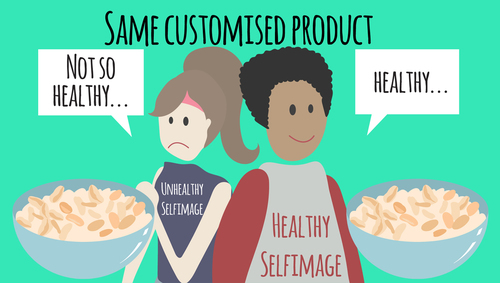Why customisation isn’t always positive
The ever-evolving world of online retail has enabled companies to use customisation as an integral part of their business strategy, however new research from Rotterdam School of Management, Erasmus University (RSM) shows customisation influences product perception of consumers.
Assistant Professor of Marketing Anne-Kathrin Klesse and her team, which included Yann Cornil and Darren Dahl from University of British Columbia Sauder and Nina Gros, a doctoral student at Maastricht University, wanted to find out how customers perceive products that they had customised. To do this, they conducted six studies in three different product domains including clothing, food, and holiday packages. The study compared customizers (i.e., those that customised a product) and non-customizers (i.e., those that received an off-the-shelf alternative) on their perception of salient product attributes, such as fashionability, healthiness, and adventurousness.
They discovered that allowing customers to customise a product means they will perceive what they created in line with how they see themselves and their most important attributes.
According to Anne-Kathrin Klesse
“Customizers who view themselves as unhealthy eaters perceived a customised muesli as less healthy compared to those that didn’t customise it. Conversely, customizers who view themselves as healthy eaters perceived a customised muesli as more healthy compared to those that didn’t customise it. Note that this occurs although the end-product for customizers and non-customizers was in fact comparable with respect to its healthiness.
“The way customers perceive a product has important downstream consequences. For instance, customizers who perceived the muesli as less healthy, were less likely to recommend the customised food to their health-conscious peers and they promoted the product as less healthy on social media compared to a customer s who received an off-the-shelf-alternative. This might have a detrimental effect if a business wants to promote their company as a healthy food store.”
Moreover, how a person feels about themselves might have direct impact on their choice of the size for a customised product.
“Our restaurant experiment revealed that customizers with an unhealthy self-image expressed lower desire to eat more of the Greek yogurt than non-customizers, because they perceived the Greek yogurt as less healthy. This suggests that customisation might impact customers’ choices of portion sizes,” Klesse explains.
The results from the research provide important insights for companies that rely on customisation as part of their business strategy, especially as these companies frequently encourage customers to share their creations to their social media networks.
This research was published in Journal of Marketing Research.
For more information: https://www.youtube.com/watch?v=lZJBQd-7xLU&t=1s
ENDS
For more information, a copy of the paper, or to speak to Assistant Professor Klesse, contact Kate Mowbray at BlueSky PR on kate@bluesky-pr.com or call +44 (0)1582 790 711.
This press release was distributed by ResponseSource Press Release Wire on behalf of BlueSky Public Relations Ltd in the following categories: Food & Drink, Business & Finance, Media & Marketing, for more information visit https://pressreleasewire.responsesource.com/about.
